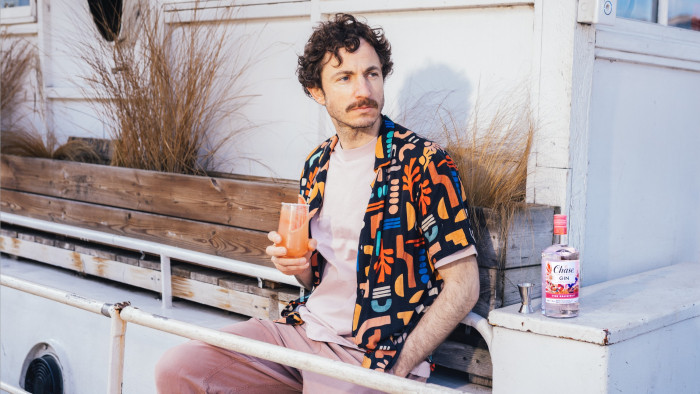“Strangers grab me in bars”: The reality of being a man with dwarfism in 2018
Tyrion Lannister does not make up for years of dire representation.


I love my dwarf body. In fact, I love all dwarf bodies. Dwarf bodies are beautiful. Dwarf bodies are powerful. I love the shape of my skull, my rounded shoulders and strong short arms, the small concave nose-bridge common to people with my form of dwarfism, achondroplasia. My partner has a dwarf body. Our children are likely to have dwarfism, too.
Related:This is what it’s like to be a bisexual man in 2018
Ours is a culture in which occupying a dwarf body still makes you a target for ridicule and abuse. A few days ago, a man loudly instructed his friends to “Look at the m*dgets!” as my better half and I left the bar we were in. Then, as we made our way home, teenagers shouted at and filmed us. That was just Saturday – and this is lightweight stuff.
A 2010 study from The University of East Anglia found that 80 per cent of people with dwarfism had received verbal abuse. I’ve heard from women with dwarfism who’ve had strangers approach them and declare they’ve “always wanted to fuck a m*dget” or have sex “with a dwarf”. As a white man, I’ve been shielded from such repulsive and terrifying sexual harassment to which dwarf women are sometimes subjected because of their bodies.
“I love ‘Game of Thrones’ and Tyrion Lannister, but they alone do not make up for years of dire representation”
Ours is a society in which people are drip-fed – through history, media, literature, and popular culture – the idea that dwarfism is, at best, undesirable, and, at worst, to be ridiculed or feared. Most average height people meet and get to know few, if any, dwarf people in real life. So cultural representations matter a great deal and massively influence perceptions, shape attitudes, and inform behaviour.
You don’t have to just take my word for it (although, if you’re average height and haven’t met a dwarf person in real life I recommend you do, as one of us here is speaking from three decades of experience…). The same study found that almost 100 per cent of participants experience staring or pointing.
Much of this is, of course, from small curious children – I think that’s fine. Anxious parents sometimes ask me what they should do when their offspring loudly voice their confusion at seeing a body different to theirs. How we introduce children to disability is critical. Kids should certainly not be encouraged to point and shout, but hissing “Ssshhh!” at an inquisitive youngster can unintentionally tell them that dwarfism is taboo or something to fear. I think it’s best to try to teach them that we are all different, and that’s a good thing.
“I’ve had strangers grab me in bars, in the street, at a bus stop”
Finally, the study found that 12 per cent of dwarf people have experienced physical violence, including me. I’ve had strangers grab me in bars, in the street, at a bus stop in broad daylight. The spectacle of violence against dwarf bodies – from the Romans to recent films like Austin Powers and Wolf Of Wall Street to ‘dwarf wrestling’ – has long since ‘entertained’ average height and able-bodied audiences. Such violence can be then re-enacted in real life, as it was in the savage attack on Martin Henderson, a man with dwarfism who was left paralysed after being thrown into the air by a drunk man.
Recently, Twitter friends asked me what average height allies could do to help make the world a better place for people with dwarfism. I cannot speak for my community as a whole nor do I want to, but here are a few ideas to get us started.
Stop saying the word “m*dget”, if you do. It has strong associations with the freak shows at which we were paraded and abused. It should never be used. If you feel uneasy calling out your friends, well think about how uncomfortable we feel when we hear it in conversation or shouted at us. “But what do we call people with dwarfism?” I hear you ask. I recently explained this on Twitter: it’s best to politely ask the person in question.
Question depictions of dwarfism you see. What’s being presented here? Is it condoning prejudice, abuse, or violence? Is it sustaining stereotypes or fetishizing dwarf bodies? I love Game of Thrones and Tyrion Lannister, but they alone do not make up for years of dire representation. We need so many more positive depictions – especially of dwarf women, dwarf people of colour, people with dwarfism from the LGBTQ community, and everyone in between.
Realise when dwarfism is being represented as undesirable or bad – usually through weak clichés to which editors and journalists resort with nauseating frequency. Examples include “in spite of their dwarfism”, “a dwarf but”, and, most vexing of all, “Little person, big [blah, blah, blah]”. Dwarfism is not something for which I need to compensate through what I’ve done or who I am. Dwarfism is who I am.
Finally, listen to our stories. No, it’s not the “PC brigade” or “PC gone mad”. Those are just excuses wielded by people with privilege who want to silence those with less privilege when the latter speak out. Denying experiences of prejudice is an act of prejudice itself. We could all learn something from others. If our social fabric was woven using only the same thread life would be dull, grey, and uninteresting. That’s not a world in which I want to live.
(Image: New Line Cinema)
Related:This is what it’s like to be a bisexual man in 2018
Latest
Related Reviews and Shortlists


Ten things you need to know about Hyrox


Horticulturist shares tips on how to urban garden







